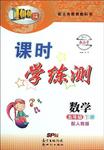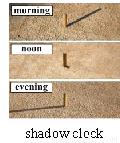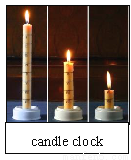题目内容
Born to Travel

Burton Holmes was a born traveller if ever there was
one. He was born in Chicago in 1870. When he was 16, his
grandmother took him to Europe. He took a camera with him, and took pictures. When he was 17, he went to Europe again with his grandmother. That year they also went to California and to Cuba.
Burton was on the road all the time after that. Everywhere he went, he took at least one camera. Then Holmes began giving talks to the Chicago Camera Club. His talks were so popular that he decided to build a business on them.
 Holmes’s first travel pictures were on glass slides(幻灯片). These were in black and white. Then he decided to have the slides painted so that his pictures would appear in colour. A few years later, in 1897, Holmes began showing moving pictures of his travel experiences. This was only a year after movies first were shown to a group of people in New York. Later, he set up a film company and his films became popular. There is even
Holmes’s first travel pictures were on glass slides(幻灯片). These were in black and white. Then he decided to have the slides painted so that his pictures would appear in colour. A few years later, in 1897, Holmes began showing moving pictures of his travel experiences. This was only a year after movies first were shown to a group of people in New York. Later, he set up a film company and his films became popular. There is even
a star with his name on Hollywood Boulevard. In 1910 Holmes published a set of books about his travel experiences. These books also included the general travel information for others to follow.
Burton Holmes had many adventures over the years. He took pictures at the first modern Olympics, in Athens, Greece, in 1896. In 1899 Holmes took the first moving pictures of a war. He was the first person to take moving pictures in China, and the first person to drive a car in Denmark. He photographed the opening of Yellowstone National Park, in 1916. When things happened, Burton Holmes was there. In travelling for 62 years Holmes kept time in his photographs, saving it for generations to come.
1.When was Burton Holmes born?
___________________________________________________________
2.Did Burton take at least one camera with him everywhere he went?
___________________________________________________________
3.Why did Burton decide to have the slides painted?
___________________________________________________________
4.What did Burton Holmes do in 1910?
___________________________________________________________
5.What was the most valuable thing Burton did for future generations?
___________________________________________________________
1.In 1870. 2.Yes, he did. 3.So that his pictures would appear in colour 4.He published a set of books about his travel experiences. 5.He kept time in his photographs, saving it for generat... 百年学典课时学练测系列答案
百年学典课时学练测系列答案


